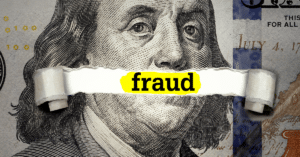On December 21st, the acting Manhattan U.S. Attorney Audrey Strauss announced a $40.5 million settlement with Apria Healthcare. The Durable Medical Equipment (DME) provider was found to be using multiple fraudulent billing practices pertaining to non-invasive ventilators.
The settlement originated from three former employees filing under the qui tam provision of the False Claims Act, allowing them to file civil under federal seal on behalf of the United States. As such, they received a percentage of the settlement payout.
This settlement was the culmination of fraudulent activities that have been taking place since 2014. During that time, Apria emphasized expanding their Non-Invasive Ventilator (NIV) rental business because health care programs pay upwards of $1,400 per month to cover this therapy.
However, programs such as Medicare require compliance with specific procedures when billing for rental equipment. Apria violated these requirements when billing monthly for their NIV Therapy. These were some of the violations that prompted others to report respiratory company fraud:
NIV Continued Use Conduct
Apria’s Respiratory Therapists (RTs) often failed to conduct visits to NIV patients. Therefore, they could not confirm that patients were using their NIVs as directed by a physician. However, Apria still collected payments from federal health programs for the equipment rentals. In some cases, payments were still sought even in cases where RT visits indicated the patient was no longer using their NIV.
PAC Mode Conduct
Apria’s sales staff actively convinced physicians to order Astral NIVs in PAC mode. While PAC mode therapy was also available through the VPAP RAD for a lower monthly cost, Apria’s sales team often failed to mention that. That resulted in many instances of Apria renting more expensive Astral NIVs when the less expensive VPAP RADs would have met their medical needs.
Co-Pay Waiver Conduct
Apria sales staff were also directed by managers to use co-pay waivers as an enticement for patients to rent NIVs from Apria instead of other DME suppliers. Co-pay waivers were used as a sales tactic even before patients raised any concerns about their ability to make payments. It was reported that Apria gave hundreds of patients co-pay waivers without assessing whether or not they were able to pay even a portion of their co-pay.
These violations resulted in Apria collecting reimbursements from federal health programs for NIV rental claims that did not comply with billing rules and guidance. The settlement mandated that Apria pay $37,632,789.89 to the United States and the remaining be paid to various states impacted by the fraud. More details about the settlement can be found in the Department of Justice’s announcement.
Acting U.S. Attorney Audrey Strauss commented that “DME providers like Apria have an obligation to ensure that the equipment and devices they rent to patients are medically necessary. When companies knowingly disregard that obligation to maximize their profits, the Office will hold them accountable for their fraudulent conduct.”
The team at Daniel J. Ocasio Whistleblower Law Group fully agrees that DME providers are obligated to comply with the rules and regulations designed to help patients fairly get the care they need. Two team members from our law group tirelessly worked on this case to hold Apria accountable for their actions.
Daniel Ocasio, managing partner, was a member of the litigation team, and Christopher Piacentile, Director of Investigations, was the originating and lead investigator since the inception of the case back in 2016.
It may seem intimidating or frightening for whistleblowers to come forward in instances such as this one, but with the right support team, the steps to report respiratory therapy fraud can be a rewarding process. Our team can guide you through the process every step of the way, helping to restore justice while fighting for your potential reward.


